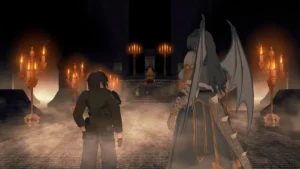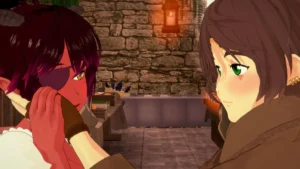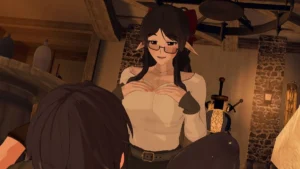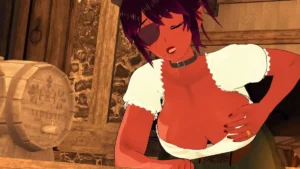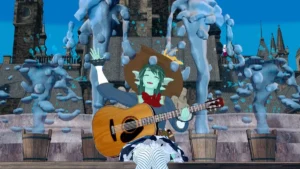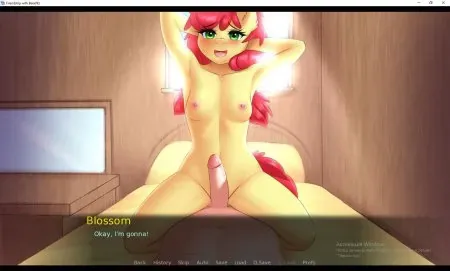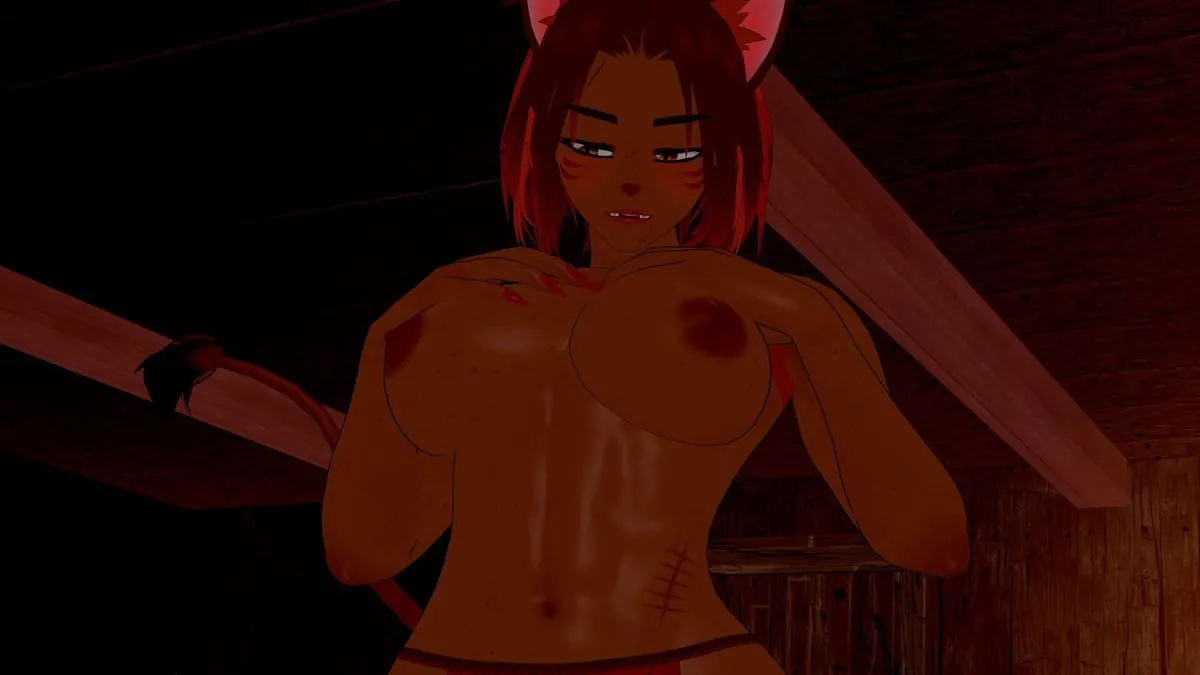
Dungeon Days
Play Dungeon Days
Dungeon Days review
A comprehensive guide to understanding this unique dungeon crawler adventure
Dungeon Days stands out as a distinctive dungeon crawler RPG that blends traditional role-playing mechanics with innovative gameplay systems. This game takes you on an adventure through a peaceful trading hub that becomes threatened by supernatural forces, creating an engaging narrative backdrop for exploration and combat. Whether you’re interested in turn-based battles, character interactions, or the unique level-draining mechanic that sets it apart from standard RPGs, Dungeon Days offers a compelling experience. This guide explores what makes this game special, from its core mechanics to character development systems, helping you understand what to expect from this creative indie title.
Core Gameplay Mechanics and Combat System
Let me tell you about the first time I truly understood Dungeon Days. I was on a hot streak, having finally reached level 15 with my warrior. I was feeling invincible, carving through dungeon floors like a hot knife through butter. Then, I went to sleep. A succubus encounter system visit later, and I was staring at a choice: lose half my hard-earned levels or lose them all. My heart sank. 😱 This isn’t your typical RPG, and that’s precisely what makes it so brilliantly compelling.
The core loop of Dungeon Days is a masterclass in risk-versus-reward, built on a foundation of solid RPG combat mechanics explained in a way that’s easy to grasp but difficult to master. It’s a game that will challenge your strategic thinking not just in battle, but in how you manage your very progression.
Turn-Based Combat and Battle Mechanics 🗡️⚔️
At its heart, Dungeon Days turn-based combat is deceptively simple. You enter a room, enemies appear, and you take turns whacking each other until one side stands victorious. But to write it off as simple would be a massive mistake. The strategic depth here is immense, and every decision matters.
The flow of battle is intuitive. You have Action Points (AP) that fuel everything you do. A basic attack might cost 2 AP, while a powerful spell could drain 5. Managing this pool is your first and most important job. Do you use two quick strikes to finish off a weakened foe, or do you save up for a massive, room-clearing ability? I learned this the hard way when I blew all my AP on a fancy skill, only to be left defenseless against a lurking spider that nearly ended my run. 🕷️
Positioning is everything. The battlefield isn’t just a static screen; it’s a tactical grid. Getting “flanked” by enemies can lead to devastating backstab bonuses for them. I always make it a point to keep my back to a wall or corner whenever possible, turning the environment into my ally. This adds a delicious layer of strategy to the Dungeon Days turn-based combat system that many similar games lack.
What truly elevates the DPG combat mechanics explained here is how they intertwine with the game’s other systems. You’re not just fighting to clear a floor; you’re fighting for experience points that you might have to willingly surrender later. This knowledge hangs over every encounter, making you weigh the value of a tough fight against the potential future loss. It creates a constant, low-grade tension that is absolutely unique.
Pro Tip: Never end your turn with unused Action Points if you can help it. Even a basic “Defend” command can reduce incoming damage. Every point spent is a step towards surviving another round.
The Unique Level-Draining System 💀😈
This is it. The mechanic that defines Dungeon Days and separates it from every other dungeon crawler on the market. The level draining mechanic gameplay is as brutal as it is ingenious. After each dungeon run, when your character rests, there’s a chance you’ll receive a… visitor. The succubus encounter system is not just a quirky aesthetic choice; it’s the core of the game’s economy and your long-term strategy.
Here’s how it works: When the succubus appears, she presents you with a devilish choice. You can willingly give up half of your current levels, or you can gamble and let her take all of them. In return, you receive “Cores,” the sole Dungeon Days currency system for purchasing permanent upgrades, new skills, and unlockable content.
My first instinct was to always choose the “half” option. It felt safer. But then I did the math. If you’re at level 10, losing half gets you 5 Cores. If you’re at level 20, losing half gets you 10 Cores. However, if you let her take everything at level 20, you get a massive payout of 20 Cores. The risk is enormous, but the reward can catapult your progression. This level draining mechanic gameplay forces you to become a master of probability and long-term planning.
This system completely reframes the entire RPG experience. Instead of the linear “get stronger forever” loop, you exist in a cycle of building up and cashing out. You might spend several sessions power-leveling a character with the explicit goal of a total wipeout for a huge currency infusion. It turns the traditional concept of “losing” on its head. Getting your levels drained doesn’t feel like a failure; it feels like a strategic withdrawal. 💰
The table below breaks down the risky choices you’ll face:
| Your Current Level | Choice: Lose Half | Cores Gained (Half) | Choice: Lose All | Cores Gained (All) |
|---|---|---|---|---|
| 10 | Drop to Level 5 | 5 Cores | Drop to Level 1 | 10 Cores |
| 20 | Drop to Level 10 | 10 Cores | Drop to Level 1 | 20 Cores |
| 30 | Drop to Level 15 | 15 Cores | Drop to Level 1 | 30 Cores |
As you can see, the Dungeon Days currency system is directly tied to your pain. The higher you climb, the more you have to lose, and the greater the potential reward. This brilliant level draining mechanic gameplay ensures that no two playthroughs are the same, and your strategy must constantly evolve.
Weapon Types, Attacks, and Magic Options ✨🔥
Your tools for survival in the ever-changing randomly generated dungeons are as varied as they are vital. The arsenal in Dungeon Days weapons and magic is divided into clear, distinct categories, each with a unique feel and strategic purpose.
Let’s start with the steel. The weapon types are straightforward but offer deep customization through their attached skills:
* Swords: 🗡️ The balanced choice. They offer reliable damage and often come with skills that have a high chance to hit. Perfect for players who like consistency.
* Axes: 🪓 The high-rollers. They can have lower accuracy but land with devastating force when they connect. I’ve had axe crits save me from certain doom more times than I can count.
* Spears: Your reach advantage. Spears often allow you to strike from the back row or hit multiple enemies in a line. Essential for controlling enemy movement.
But the real fun begins with Dungeon Days weapons and magic. Magic isn’t just a separate mana pool; it’s integrated directly into your weapon skills and findable spell scrolls. A fire-imbued sword might let you cast “Flame Arc” for 4 AP, while a rare staff could unlock a powerful “Chain Lightning” spell.
The beauty of this system is its flexibility. You aren’t locked into a “mage” or “warrior” build. You are what you equip. I’ve run builds that focused on a mighty two-handed axe supplemented with defensive barrier spells, and I’ve also tried fragile, long-range casters who used spears to keep threats at bay. The Dungeon Days turn-based combat system encourages this kind of experimentation, especially because you know your power will eventually be reset by the succubus encounter system.
Here’s a quick guide to the elemental effects you’ll discover:
| Magic Type | Primary Effect | Strategic Use |
|---|---|---|
| Fire 🔥 | High direct damage, sometimes with Damage Over Time (Burn) | Ideal for bursting down single high-priority targets quickly. |
| Ice ❄️ | Moderate damage with a chance to Freeze (skip enemy turn) | Incredible for crowd control. Freezing a powerful enemy for one turn can change the entire fight. |
| Lightning ⚡ | Hits multiple enemies, often with lower individual damage | The best tool for dealing with groups of weaker foes efficiently. |
This variety is crucial because the randomly generated dungeons can throw any combination of monsters at you. You need a adaptable kit. Finding a powerful new weapon or spell scroll feels momentous because it directly increases your survivability and your potential future currency payout. Every piece of Dungeon Days weapons and magic you discover is a tangible step towards your next big strategic decision at the succubus’s mercy.
Ultimately, the genius of Dungeon Days is how all these systems—the tense Dungeon Days turn-based combat, the devastating level draining mechanic gameplay, the versatile Dungeon Days weapons and magic, and the risky succubus encounter system—weave together into a single, unforgettable experience. You’re not just playing a game; you’re engaging in a high-stakes dance of power and sacrifice, all within the fresh, unpredictable halls of the randomly generated dungeons. It’s a game that respects your intelligence and isn’t afraid to punish your greed, and for that, it’s an absolute must-play for any RPG fan looking for something truly new. 🏆
Dungeon Days delivers a fresh take on the dungeon crawler genre by combining traditional RPG elements with innovative mechanics that set it apart from standard fantasy adventures. The turn-based combat system provides strategic depth, while the unique level-draining mechanic creates meaningful decision-making moments that influence how players approach progression. The world feels alive through diverse locations, memorable NPCs with distinct personalities, and a partnership system that encourages meaningful character interactions. The cheerful art style and engaging soundtrack create an inviting atmosphere, while comprehensive control options ensure accessibility for all players. Whether you’re drawn to the strategic combat, character-driven storytelling, or the challenge of managing an unconventional progression system, Dungeon Days offers a compelling experience that rewards exploration and experimentation. This indie title proves that innovation in game design can create something truly special within the RPG landscape.







